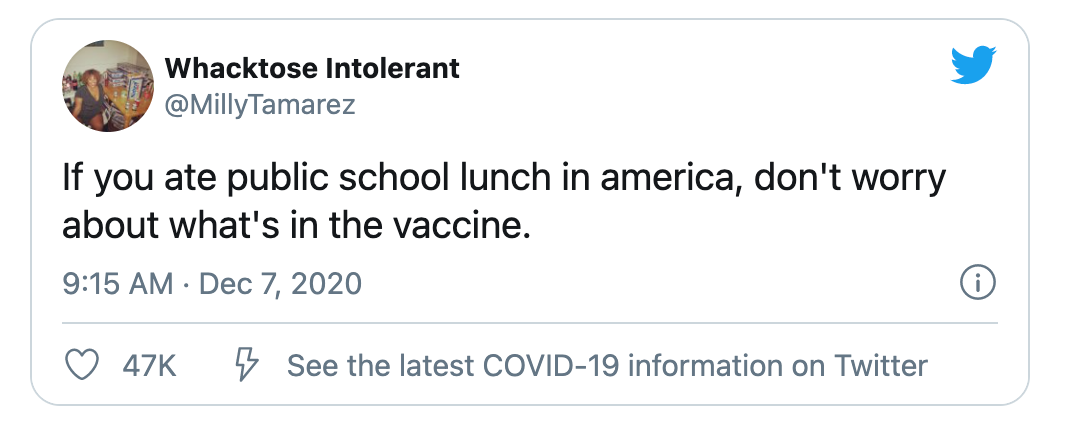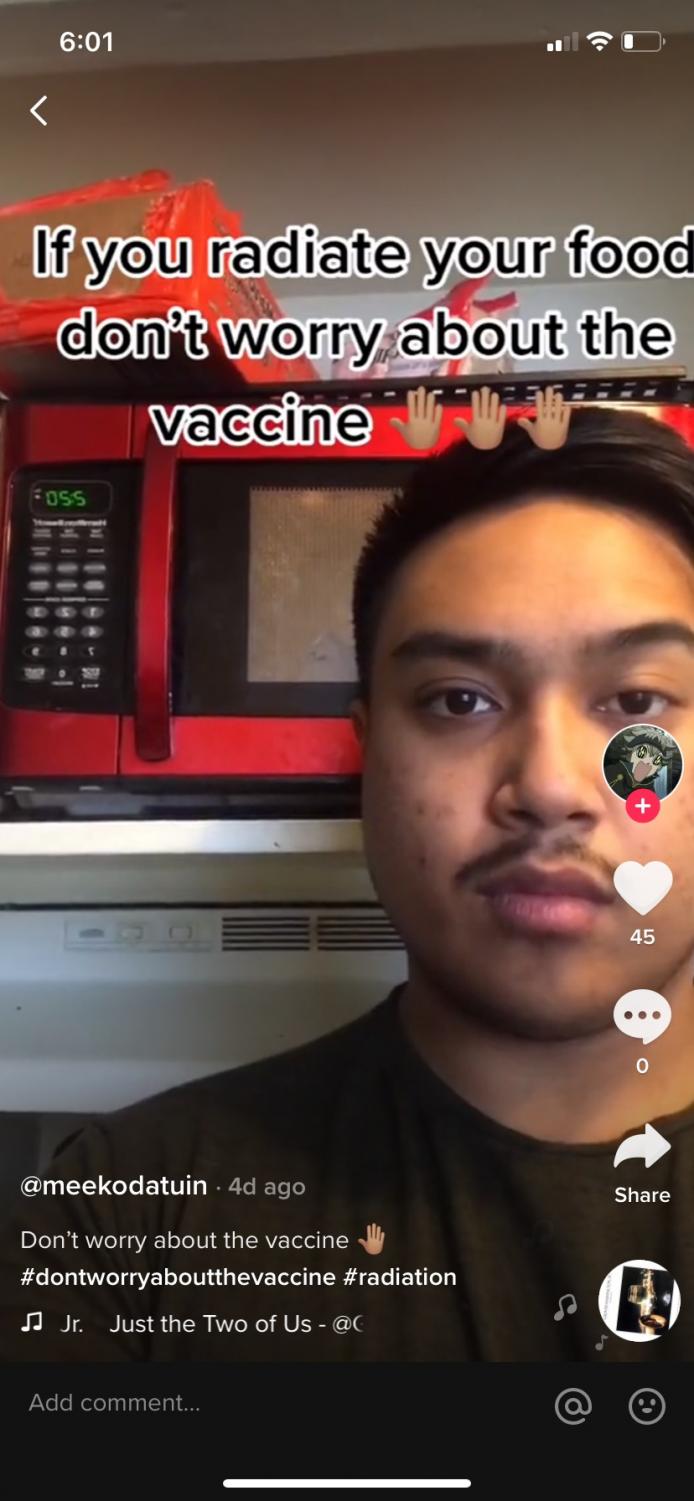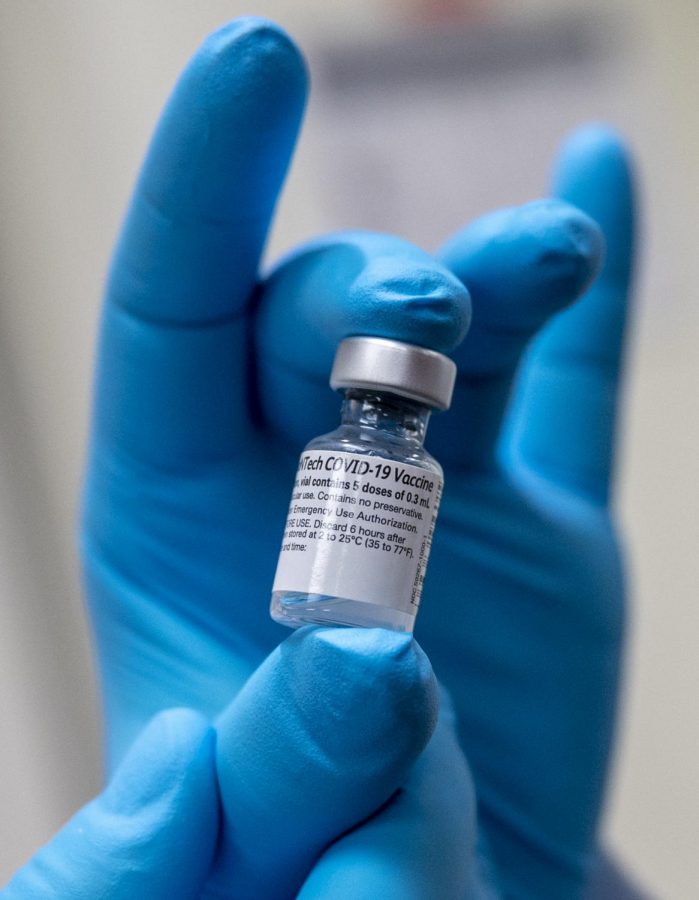The Public Responds to COVID-19 Vaccines
January 6, 2021
With the seemingly unending nature of the COVID-19 pandemic, people are anxious for any cure they can get. However, do the benefits of injecting yourself with a new vaccine outweigh the risks? The two highest-performing COVID vaccines are Pfizer’s and Moderna’s with a 95% and 94.1% efficiency rate, respectively. Both of these vaccines require two doses, with Pfizer’s separated by three weeks and Moderna’s separated by four. Pfizer’s vaccine can be taken by people 16 and older, and Moderna’s by people 18 and older. The CDC determined that health-care workers and those living in long-term care facilities would be the first US citizens to receive the vaccine.
The statistics look optimistic, although some people have expressed concerns regarding the vaccine. People are most concerned about how quickly the companies created the vaccines and distributed them to the public without fully understanding the possible long-term side effects. There have been reports of severe allergic reactions occurring from the Pfizer vaccine, such as on December 22nd, 2020, when Dr. Hossein Sadzradeh, who has a shellfish allergy, began to experience an allergic-like reaction after taking the vaccine and was treated at his hospital. There has also been some debate around who should be able to take the vaccine first, specifically regarding race. Black, Native, and Latino Americans have been disproportionately affected by the virus. Obese individuals, as well as those with cancer and heart failure, are also highly at risk. It is extremely difficult to make a definitive list of who is to be prioritized to receive a potentially life-saving procedure based on factors such as race and health.

On a more light-hearted note, many teens have been making jokes via TikTok and Instagram essentially explaining how the average American does not have to worry about the contents of the vaccine, given what else they engage in on a daily basis:
Many THS students were eager to share their thoughts on the COVID-19 vaccines. Shira Oelsner (’23) understands public fears as “living through an age of a pandemic has exposed [us] to all the unpredictability that comes with it. Especially because the vaccine, [is] something so new and unfamiliar…peoples’ fears concerning the vaccine are warranted.” In order to allay public fears she thinks that “vaccine companies must give both perspectives of the vaccine—providing the public with both the benefits and disadvantages to the vaccine.” She also thinks that “when vaccine companies publicly give prominent figures the vaccine,..[it] influences others to get it as well.” In spite of this, she believes that taking the vaccine is a personal decision. “Once the time comes that I am able to take it, I feel comfortable taking the vaccine because it is a crucial tool to end this pandemic, create protection, and of course prevent me from getting the virus.”

Mia Villavicencio (’23) said that vaccine fear is responsible, as there has been a lot of misinformation and politicization surrounding the coronavirus, leading many people to distrust health professionals or organizations. She would take the vaccine if it became available to her and she said that she puts “a lot of trust into public health professionals and scientists, and [feels] that they have followed the proper protocol for creating and testing the vaccine.” She doesn’t think they would administer this vaccine in such enormous proportions if they did not feel it was safe and effective. “I would feel less safe not taking the vaccine (in the next spring or summer) once public places start to open up.”
On the other hand, some understand people’s fears. “I personally would not feel comfortable taking the vaccine,” Hannah Joung (’21) said. “I’d rather wait it out and see the side effects it has on other people who already volunteered to take the vaccine. I don’t want to take chances…The only thing…[vaccine companies] can do is to wait until lots of people eventually take the vaccine and collectively prove to others that the vaccine is perfectly safe.”
Whether you believe that the vaccine is or is not right for you, it is important to do your own research as well as to listen to your health professionals. Stay safe!

















































































































































